Santa Barbara Rescue Mission’s Virtual Bayou Event Honors Police Chief Lori Luhnow
Homeless Guest Services and Residential Treatment Programs Are Needed Now More Than Ever
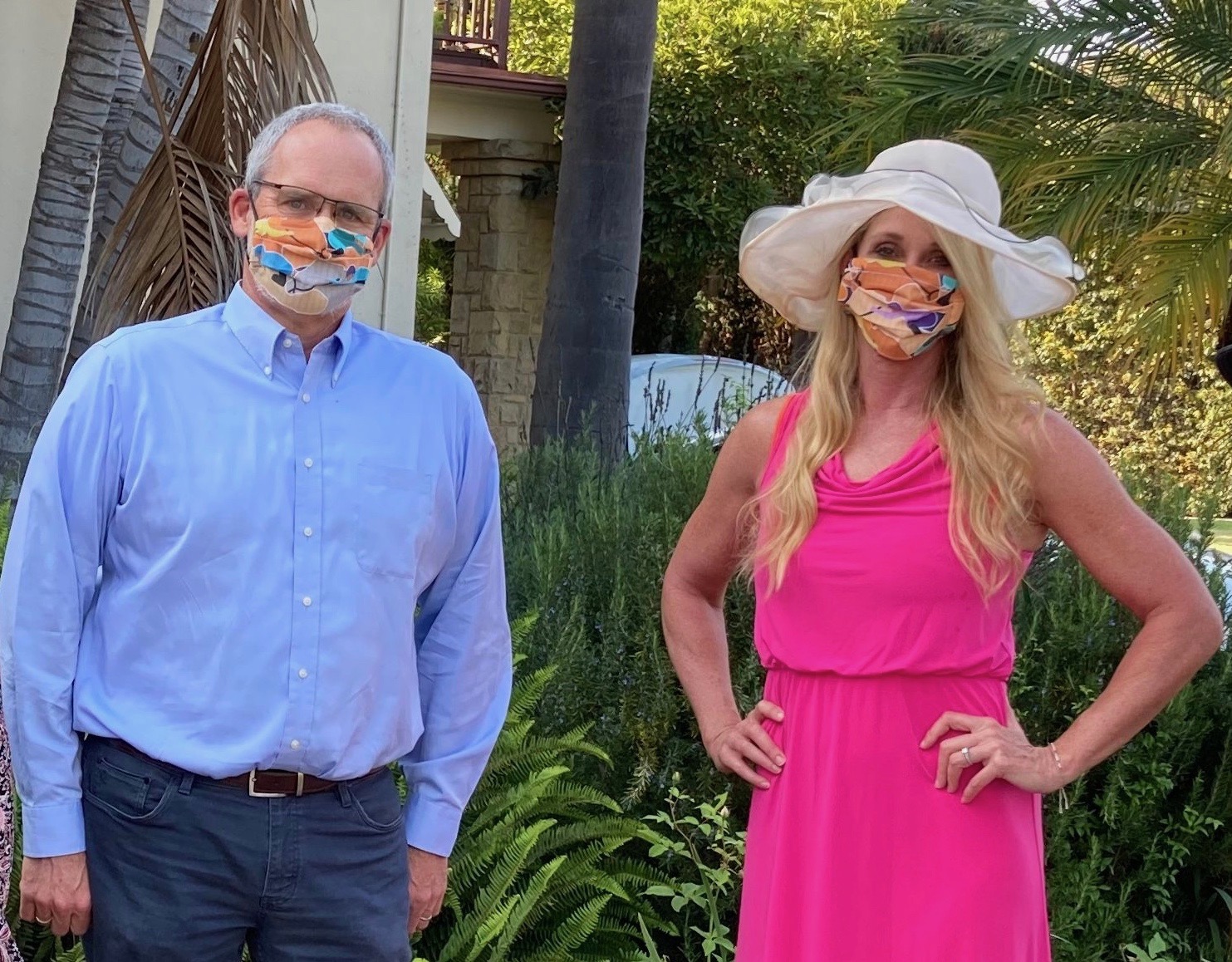
On October 3, the Santa Barbara Rescue Mission held a virtual version of its annual Bayou event, a horse-race-themed Bayou Derby, where it honored Police Chief Lori Luhnow and raised about $450,000 for its Homeless Guest Services and 12-month Residential Treatment Programs.
Volunteers from the 70-member Women’s Auxiliary delivered a four-course gourmet meal prepared by Lorraine Lim Catering to the 200-plus guests at their homes. Many guests donned derby attire, including Kentucky Derby–worthy hats, to watch the event at small, private parties. In addition to the speakers, the event included pre-recorded entertainment by the Idiomatiques, a 123-item silent auction, and a hat contest.
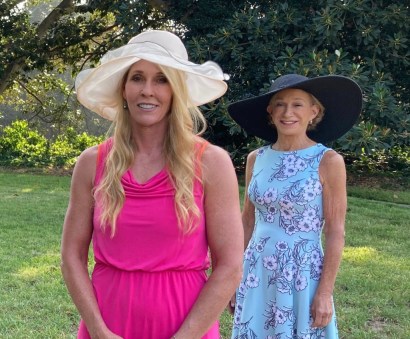
District Attorney Joyce Dudley presented the Léni Fé Bland Award to Police Chief Lori Luhnow, whom she praised for having “bravely led our city using her open heart and brilliant mind.” Dudley pointed to Luhnow’s focus on community policing and noted that her Community Dialog Intervention Plan was recently selected as a model by the International Association of Chiefs of Police. Dudley commended Luhnow also for her diligent work to eliminate all forms of bias.
Get the top stories in your inbox by signing up for our daily newsletter, Indy Today.
In accepting the award, Luhnow praised the Rescue Mission for its partnership with the S.B. Police Department. Peace officers, including the SBPD’s Restorative Team members, Luhnow noted, have become social service advocates and “the initial bridge to a place of hope like the Rescue Mission.” Luhnow emphasized how the Rescue Mission has “achieved phenomenal accomplishments,” pointing to both the food and shelter provided through the Homeless Guest Services Program and to the 12-month Residential Treatment Program.
Luhnow expressed gratitude to donors for enabling the Rescue Mission to “serve humanity’s most vulnerable” and to remain “at the forefront of providing tailor-made services to those who need them the most.”
President Rolf Geyling reminded guests that the Rescue Mission receives no government funding and that COVID has made their work both more critical and more challenging. Even pre-COVID, the Rescue Mission was the only place between Ventura and Santa Maria offering emergency food and shelter 365 days a year, Geyling noted, and COVID has reduced even further the number of places people in acute need can turn. Though in COVID times significantly more effort and resources are required, Geyling related, leaving vulnerable people unsheltered and unfed would create an even more concerning crisis.
Geyling explained how the emergency services it provides are an important “onramp” — giving people safety first, and then connecting them with broader community services. He noted concerning increases in homelessness among those who had never been homeless before, the elderly, and those struggling with mental-health issues.
With enthusiasm, Geyling shared how the Rescue Mission’s passion is to see lives transformed, and since substance abuse is among the most prevalent and vexing causes of homelessness, the Rescue Mission spends more than 70 percent of its resources on its addiction treatment programs. He cited remarkable statistics: Nationally, only one in five people who start a treatment program complete it and only one of five who complete the program maintain recovery for five years. Currently, the Rescue Mission’s completion rate is 42 percent, and 52 percent maintain recovery five years out.
Geyling noted that while each person’s story is one of heartbreak and suffering, there is also the staggering, collective cost of untreated addiction in terms of law enforcement, social services, incarceration, and emergency medical services.
Board Chair Joyce McCullough pointed to the efficiency of the Rescue Mission’s programs: Nationally, the average monthly cost for rehab is $19,000, which translates to $228,000 for a year, while the nonprofit Rescue Mission’s cost is only $25,000 per year.

The program also included a moving story of recovery by Melissa Ortiz, a female Residential Treatment Program participant.
After a $12 million renovation of its 40,000-square-foot facility completed last September, the Rescue Mission has been able to accommodate, at a safe social distance, all the homeless guests who have sought shelter, a warm meal, and a hot shower. In August, an average of 71 men and women sought shelter each night, and there were 175 unique guests. In that month alone, 3,276 dinners and 1,501 breakfasts were served. In winter months, the guest count is even higher. The Men’s and Women’s Residential Treatment Programs also have continued through COVID, complete with their academic instruction and job training components. There are 26 men and 16 women currently in the programs.
For more about the Rescue Mission or to make a donation, go to sbrm.org.
Every day, the staff of the Santa Barbara Independent works hard to sort out truth from rumor and keep you informed of what’s happening across the entire Santa Barbara community. Now there’s a way to directly enable these efforts. Support the Independent by making a direct contribution or with a subscription to Indy+.

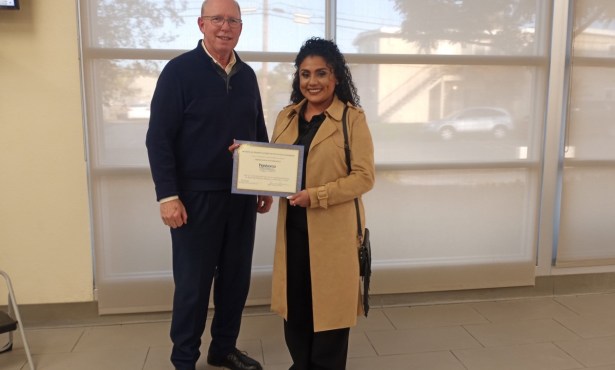
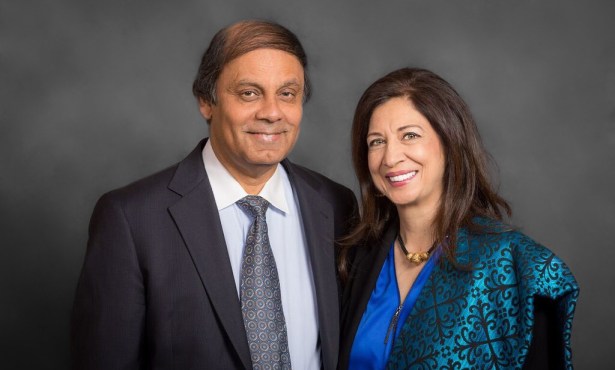
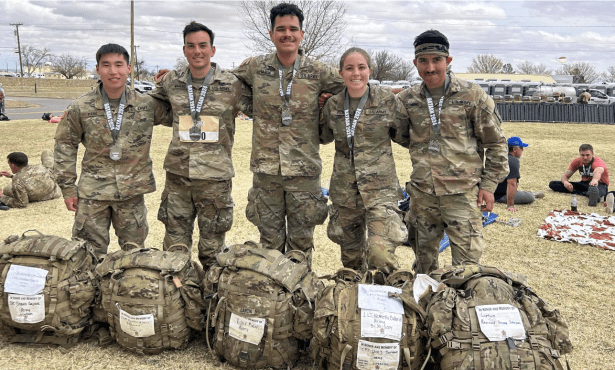
You must be logged in to post a comment.